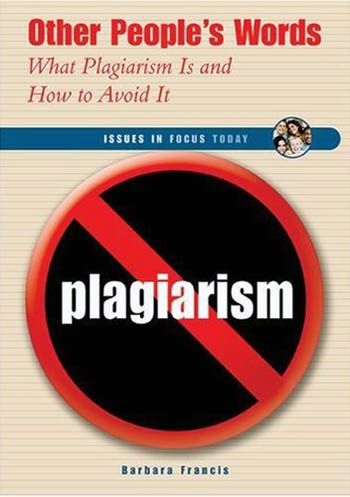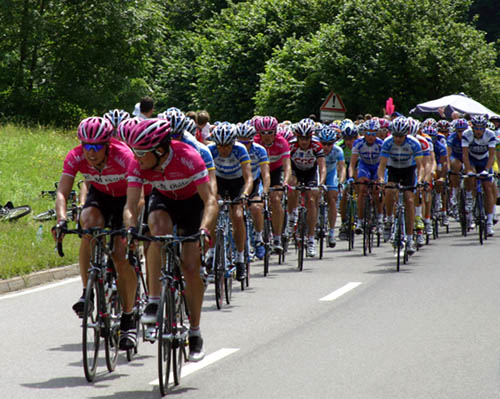Of Books and Bicycles
by Rob Zaretsky
Today, historian Rob Zaretsky tells how we can fail when we focus on winning. The University of Houston presents this series about the machines that make our civilization run, and the people whose ingenuity created them.
As the Tour de France ends, an equally grueling kind of tour begins in the US. On campuses across the country, students enroll in that odd American institution, the Great Books course. Both contests, so seemingly different, were invented for similar reasons. And both reflect unhappy changes in our societies.
The Tour, created in 1902, responded to great changes in France: growing industrialization, more leisure time, and new technologies. The Tour also helped turn the nation's rural and urban workers into Frenchmen. The epic race introduced these rising classes to France's diversity of landscapes and peoples, as well as virtues of the republic -- discipline, teamwork, and dedication.
Fifty years later, Robert Hutchins at the University of Chicago unveiled the Great Books: a collection of the literary and philosophical masterworks. Hutchins' ambition was as heroic and didactic as the Tour de France: to civilize post-war America with the writings of the ancients and moderns. Hutchins wanted the American middle class, so many of whom hailed from humble backgrounds, to join what he called "the great conversation." The Great Books led to the creation of countless world literature and civilization survey courses, ranging from Homer (the Greek) to Homer (the Simpson).
Both marathons demand a nearly superhuman effort -- an effort that, in turn, reveals the humanity of its participants. But the technological and social changes that first created these contests have also overtaken them. Doping scandals have shaken the Tour. Why the scandal, though? The cyclists aren't fools, but they use a new calculus. They consider the odds of getting caught by a random-testing system, and add their technological edge over the testers. They then weigh these risks against the rewards of winning the race. The choice seems clear, no?
At the same time, cheating grows in academia. The testers -- professors -- increasingly require students to turn in their papers to on-line programs that test them for plagiarism. But the students aren't dissuaded, for they use the same logic used by many cyclists.
We live in a world that places winning above all else, in which an education leads to a job, and isn't an end in itself; a means to make money, not a commitment to intellectual growth. Isn't it as rational to treat papers the way that the cyclists seem to treat the Tour: not a test of one's abilities, but an obstacle path to be overcome by any and all means?
But the fans insisted on a real contest among human beings, struggling against nature's limits. That's why they booed cyclists suspected of doping. They wanted them to achieve greatness by pushing against the confines of their natural constitution, not to change that constitution.
So, too, with teachers. We want students to test their limits, not their wits against the system's limits. How else might the greatness of our conversation and character survive?
I'm Rob Zaretsky, at the University of Houston, where we're interested in the way inventive minds work.
C. Thompson, The Tour de France: A Cultural History. (Berkeley: University of California Press, 2006.)

Barbara Francis' book, Other People's Words, offers guidance to teachers and students struggling with the problem of plagiarism.

A peloton, or starting cluster, of Tour de France bikers -- temporarily sharing their aggregate aerodynamic advantage. Soon, the peloton will break apart as individuals seek to become the champion. (Image courtesy of Wikipedia)